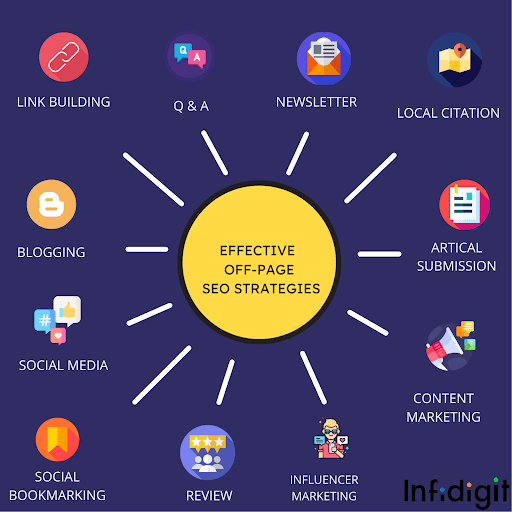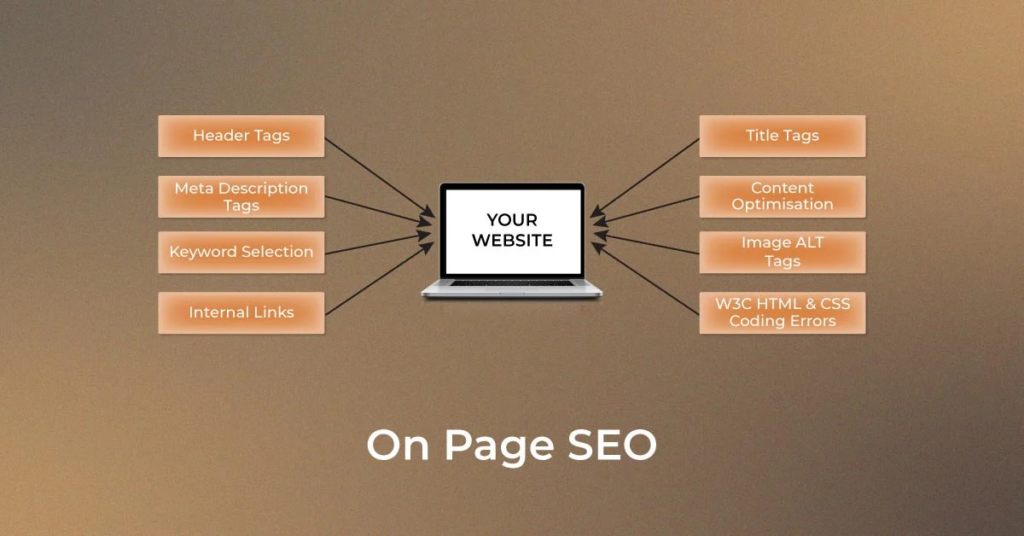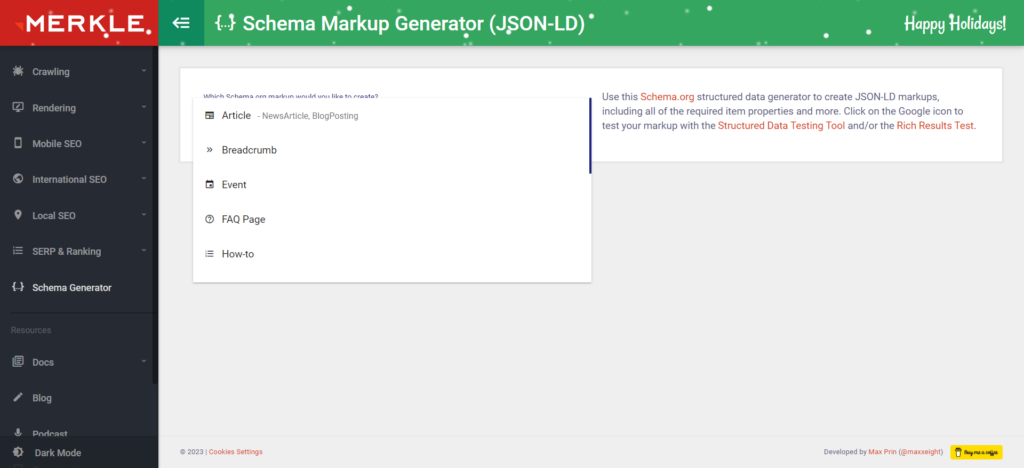AI - Driven Growth Solutions
SEO for B2B
Generate High-Intent Leads Organically

Infidigit is a CMO’s most preferred partner
2.2B+
Organic Sessions
15M+
Leads Generated
100+
Case Studies
60+
Awards & Recognitions
We are the trusted partners for brands to achieve organic success






































































KNOW ABOUT B2B SEO
Understanding the Significance of B2B SEO
Understanding the importance of B2B SEO can significantly impact a business’s success. B2B SEO, or business-to-business search Engine Optimization, serves as a vital tool for companies looking to enhance their online presence and visibility in search engines like Google. It helps businesses connect with other companies actively seeking the products or services they offer, much like placing a store in a bustling marketplace where potential clients can easily find them.
A skilled B2B SEO agency acts as a partner, providing tailored solutions that align with industry needs. These experts understand the complexities of B2B environments, ensuring your online presence meets the expectations of potential clients. Importantly, a well-executed B2B SEO strategy can lead to increased organic traffic.
Ultimately, B2B SEO is not a one-size-fits-all approach; it evolves alongside your business, helping you stand out in a competitive market and achieve long-term success.
What is the Difference Between B2B SEO and B2C SEO?
The difference between B2B SEO and B2C SEO is significant, as it directly impacts marketing strategies.
B2B SEO focuses on targeting multiple decision-makers within organizations, requiring tailored content that addresses their specific needs and concerns. In contrast, B2C SEO typically targets individual consumers, emphasizing emotional appeal and quick purchasing decisions.
Understanding their distinctions is crucial for developing effective SEO strategies that resonate with the intended audience. B2B SEO requires a focus on building trust, providing detailed product information, showcasing case studies, and demonstrating ROI. In contrast, B2C SEO often emphasizes creating a strong brand identity, leveraging social media, and appealing to consumer emotions and desires.
Complex Sales Funnels
The sales funnel for B2B is significantly more complex than for B2C. B2B purchases often involve multiple stakeholders and a longer decision-making process, with an average of 6-10 decision-makers involved in a typical B2B purchase decision. In contrast, B2C purchases are usually made by a single individual in a shorter timeframe.
By understanding the complexity of the B2B sales funnel, marketers can create targeted content to address the needs of each stage, ultimately driving more qualified leads and sales. For example, creating case studies that showcase how your product solved a specific business challenge can be effective at the decision stage of the funnel.Low-Volume Keywords
B2B SEO often focuses on low-volume, high-intent keywords that specifically target the needs of businesses. These keywords may have lower search volumes but tend to attract more qualified leads.
For example, a B2B company selling enterprise software might target keywords like “cloud-based ERP solutions for manufacturing” rather than broader terms like “enterprise software.”
By prioritizing these niche keywords, B2B marketers can reach the right audience at the right time, leading to higher conversion rates and a better return on investment. Additionally, low-volume keywords often have lower competition, making it easier to rank them in search results.
Low Conversion Rates
B2B SEO often has lower conversion rates compared to B2C, as the sales cycle is typically longer and involves multiple decision-makers. However, the value of each conversion is usually much higher in the B2B space.
For instance, a B2B software company might have a lower website conversion rate, but each sale could be worth thousands or even millions of dollars.
By focusing on providing valuable, informative content that addresses the specific pain points of their target audience, B2B marketers can nurture leads and build trust throughout the lengthy sales process. This approach ultimately leads to higher-quality conversions and a stronger return on investment.
Need for Demonstrated Brand Thought Leadership
In B2B SEO, establishing thought leadership is crucial for building trust and credibility. Businesses often seek expertise and insights before making purchasing decisions. By creating high-quality content, such as whitepapers, webinars, and industry reports, companies can position themselves as industry leaders.
For example, a marketing agency that shares valuable insights on trends can attract potential clients looking for knowledgeable partners. Demonstrating thought leadership not only enhances brand reputation but also fosters stronger relationships with prospective customers, ultimately driving conversions.
We create success stories like these for your brand
Strategies
Top strategies for B2B SEO Services
1. On Page Optimization Techniques
When it comes to improving your online presence, on-page optimization plays a crucial role. The goal is to enhance your website’s visibility and user-friendliness for potential clients.
Key techniques include optimizing title tags, which serve as headlines that inform both search engines and users about your content. Creating keyword-rich title tags increases relevance, while meta descriptions provide a brief overview that can entice users to click.
Utilizing header tags from H1 to H6 helps organize content, making it easier for visitors to navigate. An optimized page not only attracts search engines but also ensures a positive user experience.
By implementing these on-page strategies, you can significantly improve your B2B SEO efforts and connect effectively with potential clients. Seeking professional guidance can further enhance the impact of these optimization techniques.
2. Off-Page SEO Strategies
Off-page SEO is essential for enhancing your business’s online presence and credibility. This aspect of SEO goes beyond your website, focusing on various external efforts to improve your brand’s reputation across the internet.
One effective off-page strategy is building high-quality backlinks from reputable websites. These links act as endorsements, signaling to search engines that your B2B company is a trusted authority in its field. Engaging in guest posting on industry blogs or publications can help you secure these valuable backlinks.
Maintaining a strong social media presence is another vital off-page SEO tactic. Platforms like LinkedIn allow you to connect with potential clients while boosting your overall online authority.
Additionally, positive reviews and testimonials play a significant role. They not only influence customer decisions but also indicate to search engines that your B2B services are reliable and valuable. By incorporating these off-page SEO techniques, you can significantly enhance your visibility and reputation, resonating with your target audience.

3. Technical SEO for B2B Agency
Technical SEO focuses on optimizing elements that help search engines understand and rank your website effectively.
First, prioritize site speed, as a faster website enhances user experience and improves search rankings. Optimize images, leverage browser caching, and minimize redirects to achieve this.
Next, ensure your site is mobile-friendly. With over 53% of global internet traffic coming from mobile devices, a responsive design is crucial for accommodating various screen sizes and improving user engagement.
Additionally, enhance your site’s crawl ability by utilizing XML sitemaps and robots.txt files, and regularly fix crawl errors to facilitate efficient indexing by search engines.
Finally, securing your website with HTTPS is essential. Google favors secure sites, which can positively impact your search rankings. Obtaining an SSL certificate not only encrypts data but also builds trust with your audience. By focusing on these technical aspects, you can significantly boost your site’s performance in search results.
4. Keyword Research and Targeting
Keyword research plays a role in creating SEO content. It involves identifying and targeting keywords that potential users are likely to search for on search engines. Having a keyword research strategy is vital for optimizing your content and improving its visibility on search engine results pages (SERPs).
To get started:
- Consider your target audience and their interests.
- Take advantage of tools like Google Keyword Planner, SEMrush, or Ahrefs to explore keywords.
- Look for a balance between search volume and competition to find impactful keywords for your content.
Long-tail keywords, such as “B2B lead generation strategies” and “cloud-based project management tools,” are extended phrases that can be highly effective for SEO. These keywords typically face less competition, allowing you to attract more targeted traffic to your website or blog. It’s crucial to consider user intent when selecting keywords to ensure your content meets the specific needs of your audience.
Additionally, regularly updating your keyword strategy is important to align with industry trends and adapt to changes in search engine algorithms. This ongoing optimization helps keep your content relevant and maintains its visibility over time. Ultimately, a successful SEO strategy combines high-quality content with strategic keyword usage, enhancing your chances of connecting with the right audience and achieving your business goals.
5. Optimizing On-Page Elements
Enhancing the visibility and relevance of your content relies on optimising on-page elements. To start, carefully position your target keywords in areas such as the title tag, meta description, and header tags. This enables search engines to grasp the focus of your content.
Compose a captivating and concise description that not only incorporates keywords but also entices users to click on your link. Utilise header tags (H1, H2, etc.) to organise your content in a way that enhances readability for both users and search engines.
Integrate multimedia elements like images and videos with text to enhance user experience. It is crucial to ensure that your content is mobile-friendly since search engines prioritise websites that are responsive across devices.
Keep your content updated and refreshed with information and trends. This indicates to search engines that your content remains relevant and valuable. By optimising on-page elements, you increase the likelihood of achieving rankings in search engine results while attracting the audience.
6. Creating High-Quality Content
Creating high-quality content is essential for effective SEO. Begin by thoroughly researching your topic to ensure accuracy and depth. Capture your audience’s attention with an engaging introduction, and maintain a clear and concise writing style throughout.
Aim to provide value by addressing your readers’ needs and concerns, while naturally incorporating relevant keywords to boost search engine visibility. Utilize various content formats, such as informative articles, case studies, and engaging infographics, to cater to different learning styles.
Consistency in publishing is crucial for building credibility and keeping your audience engaged. Encourage social sharing to broaden your content’s reach and foster community interaction. Additionally, regularly updating and repurposing existing content helps maintain its relevance.
By prioritizing quality over quantity, your content can become a trusted resource within your niche, establishing authority and trust. This strategy not only enhances your SEO efforts but also cultivates a loyal readership among B2B audiences.
7. Building a Strong Backlink Profile
Developing an effective backlink profile is essential, for achieving success in SEO. It is important to focus on acquiring top notch backlinks from websites that’re relevant to your industry or niche. Look for opportunities to collaborate engage in guest posting and form partnerships in order to naturally establish links.
To attract attention from influencers and authoritative figures in your field it’s crucial to create content that other websites will find valuable and be motivated to link to. Take advantage of media platforms to promote your content and generate interest.
Maintaining a range of anchor text will help ensure that your backlink profile appears organic and natural. Regularly monitor your backlinks using tools like Google Search Console or third party services so you can identify and address any links.
Building a robust backlink profile takes time and dedication to practices. Avoid engaging in link building tactics that could result in penalties, from search engines. By earning high quality backlinks you can enhance the authority and visibility of your website ultimately contributing to a SEO strategy.
8. Mobile Optimization
Mobile optimization is essential to have a strong online presence. With the increasing use of mobile devices to access the internet, it’s crucial to ensure that your website offers a user-friendly experience on these platforms. Through responsive design, you can ensure that your site adapts seamlessly to various screen sizes, providing a smooth and enjoyable experience for mobile users.
To improve performance on mobile devices, it’s essential to optimise images and other multimedia elements, reducing loading times. Simplify the navigation by minimising menu complexity and ensuring easy accessibility. Additionally, ensure that your content is easily readable on small screens by using appropriate font sizes and avoiding pop-ups that can hinder the mobile user experience.
Utilize tools like Google’s Mobile-Friendly Test to evaluate your website’s performance on mobile devices and identify areas for improvement. A mobile-optimised website not only broadens your audience reach but also significantly boosts your search engine ranking, as search engines increasingly prioritise mobile-friendly sites. Therefore, integrating mobile optimization into your SEO strategy is not just beneficial; it’s essential for staying competitive in today’s digital landscape.
9. Technical SEO
Technical SEO is a critical component of optimising a website for search engines. It involves addressing backend elements to enhance a site’s visibility and performance. Start by ensuring proper website indexing through the creation and submission of a sitemap to search engines.
Optimise page speed by compressing images, utilising browser caching, and minimising unnecessary code. Implement a secure HTTPS protocol to build trust with users and improve search engine rankings. Utilise structured data markup to provide search engines with additional context about your content.
Regularly audit and fix crawl errors, broken links, and duplicate content to maintain a clean and well-organized website structure. Implement a solid URL structure that is both user-friendly and search engine-friendly. Utilize canonical tags to avoid duplicate content issues.
Technical SEO ensures that search engines can efficiently crawl, index, and understand your website, contributing to improved rankings and a better user experience. Regularly monitor and update technical aspects to stay aligned with evolving search engine algorithms.
10. Conversion Rate Optimization (CRO)
In the B2B industry, it is essential to master conversion rate optimization (CRO) to achieve success. CRO goes beyond attracting clicks; it focuses on transforming website visitors into leads and ultimately,clients.
To cater to the B2B audience, make adjustments to your website experience. This entails incorporating user navigation and compelling calls to action, which play a role. Through CRO, analyse user behavior, conduct A/B testing, and refine landing pages to achieve the outcomes. By improving these aspects, you ensure that every element aligns with the objective of converting visitors into meaningful business interactions.
In a B2B context where trust is of importance, effective CRO serves as a guiding force for businesses aiming to enhance conversion rates and foster sustainable growth. Optimise your touchpoints in order to transition visitors into B2B partnerships smoothly.
11. Implementing Schema Markup
Implementing schema markup is a valuable strategy for enhancing your website’s visibility in search engine results. Schema markup provides search engines with structured data about your content, helping them better understand its context. This, in turn, can result in more informative and visually appealing search results, such as rich snippets and featured snippets.
Key types of schema relevant for B2B include:
- Product Schema: Highlights product details like pricing and reviews
- Review Schema: Showcases customer ratings to build trust
- Event Schema: This can be used to promote webinars or industry conferences effectively.
By implementing schema markup, you not only improve the search engine’s understanding of your content but also increase the likelihood of your site being featured prominently in search results. This can lead to higher click-through rates and better overall visibility, contributing to the success of your SEO strategy. Regularly update and validate your schema markup to align with evolving search engine guidelines.
You can easily create schema markup using tools like the one available on Merkle.com. This tool offers a variety of schema types to choose from, such as Review, Article, Recipe, and more.

12. Analytics and Continuous Optimization
It is crucial to make use of analytics tools like Google Analytics and Google Search Console to improve your presence continuously. Google Analytics offers insights into how users interact with your website, allowing you to understand their behaviour. By monitoring metrics such as page views, bounce rates, and user demographics, you can identify areas that need improvement.
Google Search Console complements this by providing data on search performance, indexing, and any issues that could impact the visibility of your site. Regularly reviewing search analytics click-through rates and impressions helps refine your SEO strategy.
These tools are helpful for tracking the performance of keyword landing pages and user engagement. By identifying trends, leveraging strategies, and addressing issues promptly, you can continuously optimize your website based on data-driven insights from these tools. This ensures that your website remains competitive, user-friendly, and aligned with changes in search engine algorithms. It is essential to audit and adjust your strategy to stay adaptable to evolving user behaviours and industry trends.
13. Measurement and Reporting in B2B SEO Campaigns
In B2B SEO campaigns, effective measurement and reporting are pivotal for demonstrating the impact of strategies. Utilising key performance indicators (KPIs) like organic traffic, lead generation, and conversion rates is essential for gauging success. Employ analytics tools such as Google Analytics and Google Search Console to monitor website performance, user behavior, and keyword rankings.
A notable tool in this domain is Infigrowth’s Ranking, provided by Infidigit, a leading SEO company. This advanced tool is specifically designed to deliver comprehensive insights into keyword rankings, enabling businesses to closely track their performance in search engine results. It goes beyond basic tracking, offering features like competitor analysis and actionable recommendations, which are invaluable for B2B enterprises looking to refine their SEO strategies. Utilising Infigrowth Ranking can significantly enhance measurement accuracy and empower businesses to make informed, data-driven decisions. This leads to continuous improvement and optimization of their SEO campaigns.
Infigrowth stands out as a robust tool for monitoring keyword performance, and it extends its capabilities to track the overall ranking of your website, providing a holistic view of your SEO progress.
Our clients talk about their transformative growth journeys.


Carla Rabe

The Iconic


Achint Setia

Carla Rabe
Product Lead at Superbalist

The Iconic
Head of SEO at THE ICONIC

Achint Setia
VP Marketing at Myntra


Suresh Chettiar


Manish Dubey


Awant Bhagat

Suresh Chettiar
Marketing and Product Head at NUUU

Manish Dubey
CMO, ICICI Prudential Life Insurance Company Limited

Awant Bhagat
Head of Digital Marketing at Stader


Vipul Oberoi


Lara Salomon

Vipul Oberoi
Director - Marketing, CSR & Learning Solutions at D&B

Lara Salomon
Marketing Specialist at Solid Systems


Anurag Goyal

Anurag Goyal
Sr. Manager - Digital Marketing at Extramarks


Altaf Saiyed
Founder of Traya

Altaf Saiyed
Founder of Traya


Aparna Acharekar


Rituj Kate

Aparna Acharekar
Programming Head at Zee5

Rituj Kate
SM – Product at Dream11


Nidhi Gupta


Manan Bajoria

Nidhi Gupta
Marketing Assistant at Tata Consumer Products

Manan Bajoria
AVP | Growth, Ixigo
PLAN
SEO Packages and Plans
Lite
Boost your visibility and drive initial growth
- 500 Keyword tracked weekly
- 30 pages optimised
- Bi-Annual reviews with Seniors
Standard
Elevate your website to achieve higher visibility
- 1000 Keywords tracked weekly
- 50 pages optimised
- Quaterly reviews with Seniors
Pro
Supercharge your websites growth by advance strategies
- 1500 Keywords tracked weekly
- 70 pages optimised
- Monthly reviews with Seniors
Enterprise
Unleash the full potential of your websites presence
- 2500 Keywords tracked weekly
- 200 pages optimised
- Monthly reviews with Seniors
Summary
Choosing the Right B2B SEO Agency
Selecting the right B2B SEO agency is similar to finding a trusted partner for your business journey. It’s essential to choose an agency with the expertise to navigate the complexities of the digital landscape. When evaluating potential partners, consider their experience in your specific industry. Infidigit, for instance, boasts a strong track record of helping businesses achieve online success.
Look for tangible evidence of success through client testimonials and detailed case studies. Infidigit showcases numerous success stories that demonstrate their ability to deliver results tailored to businesses like yours.
The ideal agency recognizes that SEO is not a one-size-fits-all approach. Seek a partner like Infidigit that prioritizes customization to align their strategies with your unique business goals.
Transparent communication is vital in any partnership. A reliable agency will keep you informed about strategies and progress, fostering trust throughout your collaboration.
Ultimately, choosing the right B2B SEO agency is crucial for your growth. Infidigit stands out with its proven expertise and client-focused approach, making it a strategic choice for enhancing your online presence and achieving sustainable success.
Conclusion
In summary, the key to success in B2B SEO lies in selecting the partner. A trustworthy B2B SEO agency transcends the role of a mere service provider to become a strategic collaborator, guiding businesses towards digital excellence.
At Infidigit, we are dedicated to offering customised solutions, open and honest communication, and a holistic approach that ensures we stand by your side as you navigate the landscape. Enhance your presence and sustainable growth, and confidently maneuver through the ever-changing digital world by choosing a partner like Infidigit. With us, success is not an end goal but an ongoing journey towards excellence.
Other Solutions
More Ways to Drive Results
Search Engine Optimization
Unlock higher rankings, quality traffic, and increased conversions through tailored award-winning SEO strategies.
Conversion Rate Optimization
Enhance your website that drives users to complete a desired action to become your customer.
Website Development
Latest web development frameworks, responsive design techniques, and robust backend systems to ensure your website is fast, secure & seamless.
App Store Optimization
Optimise your mobile app with our award-winning ASO strategies that will lead to higher rankings & installs on Play Store & App Store.
Content Writing
Craft your brand narrative efficiently with our skilled writers, tailoring content strategies to effectively convey your story.
Local SEO
Boost local visibility, attract quality traffic, and drive conversions with tailored Local SEO strategies.
YouTube SEO
Drive video growth, attract loyal subscribers, and amplify engagement with tailored strategies.
Amazon SEO
Enhance your Amazon presence, capture more buyers, and drive sales with custom optimization strategies.
Link Building
Strengthen your site’s authority, attract quality traffic, and improve SEO with expert link building.
Industries
Discover how we can help across various industries
Locations
We drive growth Worldwide, delivering solutions wherever you are
FAQs on B2B SEO
Are B2B SEO services worth it?
How long does it take to see results from B2B SEO efforts?
What are some successful B2B SEO case studies?
How does B2B SEO differ from B2C SEO?
What types of content work best for B2B SEO?
How often should I update my B2B SEO strategy?
How useful was this post?
0 / 5. 0



























































